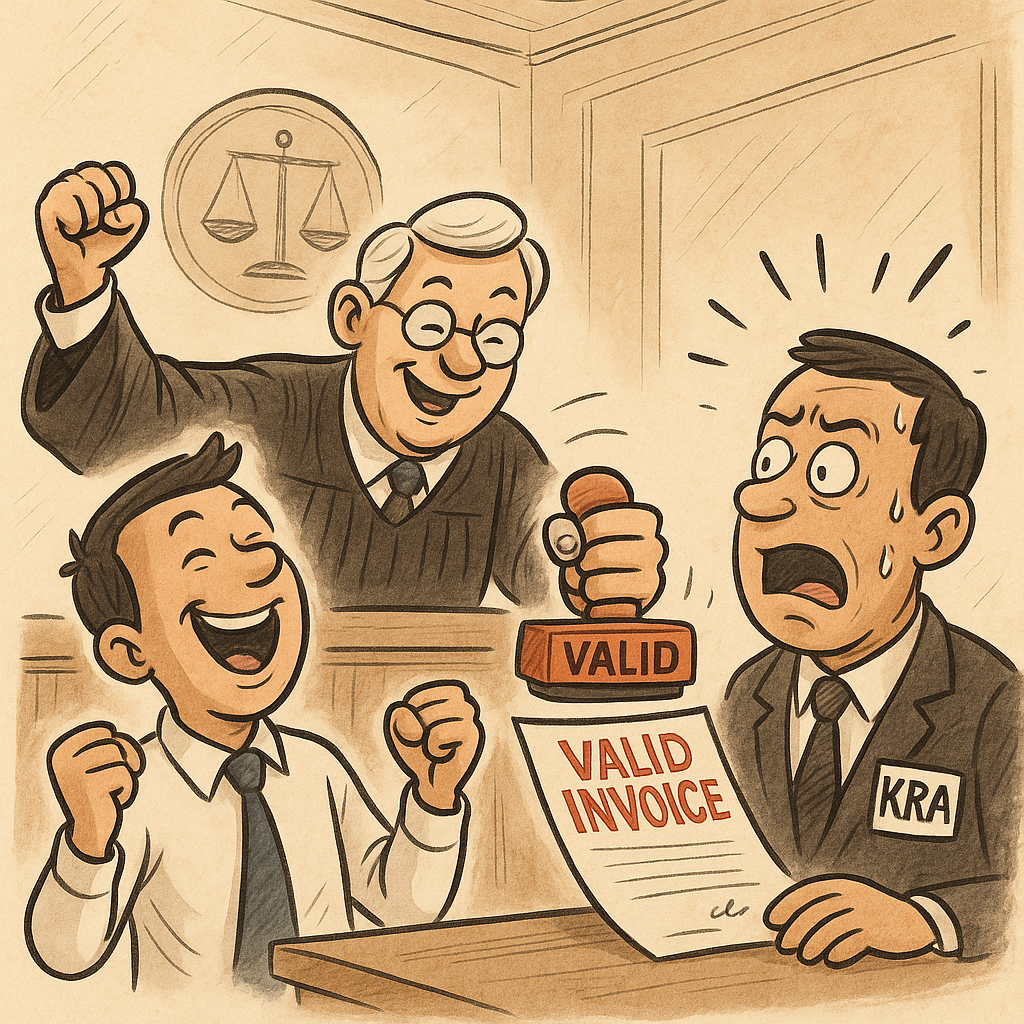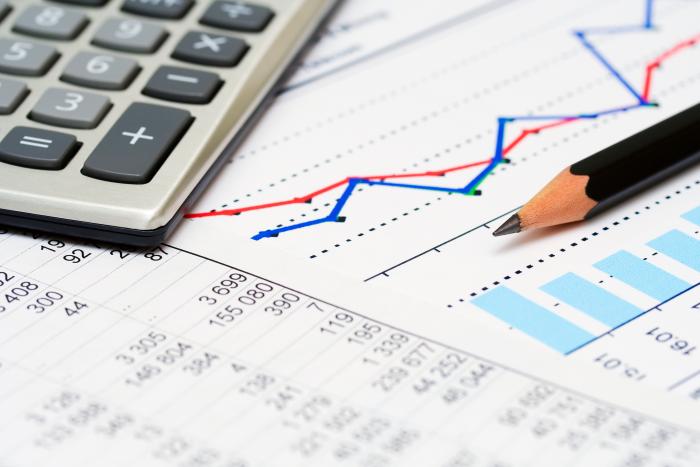
VAT Special Table and the Missing Trader Scheme in Kenya, What Business Owners Need to Know
Tuesday, Sept 30, 2025
The VAT Special Table in Kenya has become one of the most confusing tax compliance hurdles for businesses. Introduced by the Kenya Revenue Authority (KRA) to fight VAT fraud and the Missing Trader Scheme, it has instead left many genuine taxpayers struggling with blocked PINs, restricted input VAT, and damaged client relationships.
In this guide, we explain what the VAT Special Table is, why your business could end up on it, the impact of being flagged, and the practical steps you can take to stay compliant and protect your operations.
Please enter your name and email to read the full article. “Your PIN has been restricted due to VAT compliance irregularities.” Your phone buzzes, a client is asking why they can’t claim input VAT on your invoice. Another supplier is chasing you for VAT payments you can’t offset. Overnight, your operations feel paralyzed. Welcome to the VAT Special Table. For many businesses in Kenya, this list has become one of the most confusing, frustrating, and misunderstood hurdles in the tax landscape. Introduced to curb VAT fraud, the Special Table was meant to clean up the system. But in practice, even compliant businesses find themselves caught up, sometimes because of a late filing, sometimes because of a supplier they didn’t even know was flagged. Let’s break down what it is, why it matters, and what you can do if your business ends up on it. What Is the VAT Special Table? 🚫 You can’t file VAT returns. Think about that. If a customer buys from you, their costs automatically rise because they can’t reclaim the VAT. Very quickly, you stop being competitive in the market. KRA rolled out this measure in 2023 to fight VAT fraud, particularly fake invoicing and the notorious Missing Trader Scheme. On paper, it was a bold step. In reality, it has created serious challenges for genuine taxpayers. Why Businesses Get Flagged • Unfiled or unpaid VAT returns. Even a single oversight can raise flags. KRA’s logic is straightforward: protect revenue at all costs. But the approach doesn’t always distinguish between deliberate fraud and ordinary mistakes. The Real Impact on Business Suddenly, your customer’s costs rise. Why would they buy from you when they can buy from a competitor whose invoices are valid? On your side, suppliers still expect you to pay VAT. But because you can’t claim it back, your margins shrink. Over time, cash flow takes a hit, relationships strain, and your business credibility suffers. This is why the Special Table matters, not just as a tax issue, but as a survival issue. The Missing Trader Scheme: Fraudsters set up shell companies. They generate fake invoices, claim VAT refunds on goods that were never delivered, and disappear before KRA can catch them. In some cases, chains of fake invoices are used to create the illusion of genuine transactions. The cost? Billions. In fact, estimates suggest the scheme has been draining KSh 2.5 billion every month from Kenya’s revenue. To combat this, KRA tightened the rules: • Suspended online VAT registration. The intent is clear, stop fraud before it spreads. The problem? In sweeping up fraudsters, compliant businesses often get trapped too. Cash Payments: Still Legal, Still Risky What matters is your documentation. Do you have: If yes, you’re within your rights. The issue isn’t cash, it’s poor record-keeping. And when KRA sees gaps, they assume the worst. What the Tribunal Has Said Some key takeaways: Otherwise, businesses end up paying VAT twice. These rulings create hope for businesses wrongly flagged. They also show that challenging KRA decisions is not only possible but sometimes necessary. Getting Off the Special Table • Proof of eTIMS compliance. If KRA is satisfied, they lift the restriction. If not, you have the right to escalate to the Tribunal. The process can be frustrating and slow, but with the right preparation, it’s possible. The real key, though, is prevention: ✔ Verify your suppliers. How Adamjee Auditors Can Help We’ve seen the panic first-hand: directors calling us late at night after discovering their PIN was restricted, businesses losing clients because their invoices were blocked, SMEs struggling with cash flow because they couldn’t claim input VAT. Our role is to cut through the confusion. We help you: The VAT Special Table was designed to catch fraudsters. But it shouldn’t cripple genuine businesses. With the right support, you can navigate it and protect both your compliance and your reputation. At Adamjee Auditors, we believe in turning complexity into clarity. If your PIN has been flagged, or if you want to safeguard your business from such risks, reach out to us today. Disclaimer Tax laws and regulations in Kenya are subject to change, and interpretations may vary depending on the facts of each case. Adamjee Auditors accepts no liability for any loss or damage arising from reliance on the content herein. For advice specific to your business situation, please consult with a qualified professional or contact Adamjee Auditors directly.
The VAT Special Table is an internal list maintained by the Kenya Revenue Authority (KRA). Once your PIN is on it,
🚫 You can’t claim input VAT.
And worst of all… 🚫 your customers can’t claim input VAT on your invoices.
KRA doesn’t publish its internal criteria, but based on cases we’ve handled and tribunal decisions, businesses typically land on the Special Table for reasons like:
• Failure to use eTIMS. KRA views this as a critical red flag.
• Suspicious invoicing. Think fake claims, invalid receipts, or transactions that don’t reconcile.
• Links to “missing traders.” Sometimes, it’s not even your fault. If you bought from a supplier later found to be fraudulent, you could be pulled into the net.
Being flagged isn’t just a tax inconvenience, it’s an operational crisis. Here’s a simple example:
You sell goods worth KSh 1,000 + VAT (KSh 160). Normally, your customer pays KSh 1,160, then reclaims the KSh 160 as input tax. No problem. But if you’re flagged, that KSh 160 is blocked.
To understand why KRA is so aggressive, you need to know about the Missing Trader Scheme. It works like this:
• Required in-person verification of directors.
• Introduced the Special Table to freeze suspicious accounts.
Here’s a common scenario: a supplier demands cash. You pay, get your goods, and move on. Later, KRA questions the legitimacy of the transaction because cash leaves a weak trail.
Let’s be clear, cash payments are not illegal. The VAT Act doesn’t forbid them.
• Proper eTIMS invoices?
• Delivery notes?
• Receipts?
• A well-maintained cashbook?
This is where things get interesting. The Tax Appeals Tribunal (TAT) has dealt with several cases on the VAT Special Table, and the rulings often favor taxpayers.
• Input VAT is still claimable even if the supplier didn’t remit it. If you paid and have proper documentation, your claim stands.
• KRA must prove fraud, not just allege it. Accusations alone don’t hold.
• It’s unfair to penalize buyers for suppliers’ non-compliance.
So, what can you do if your PIN lands on this list? Most businesses start by engaging KRA directly. You’ll likely be asked to provide:
• Sample invoices (both sales and purchases).
• Evidence of VAT payments (bank slips, receipts, cashbooks).
• Financial statements.
• Registration documents and director IDs.
✔ Always insist on eTIMS invoices.
✔ Keep thorough records.
• Engage with KRA effectively.
• Compile and present the right documentation.
• Challenge unfair listings at the Tribunal.
• Put systems in place to avoid future risks.
The information contained in this article is provided by Adamjee Auditors for general guidance and educational purposes only. While every effort has been made to ensure accuracy at the time of publication, the article does not constitute legal, tax, or professional advice, nor should it be relied upon as a substitute for specific guidance tailored to your circumstances.



